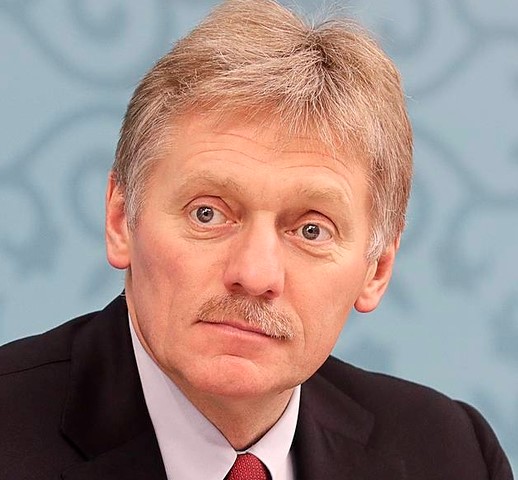Peskov called the purpose of the decree on the retaliatory seizure of foreign assets
The presidential decree will ensure the stable operation of companies significant to the economy, Peskov said . According to him, if necessary, the authoritiescan expand the list of companies,which are under external controlDmitry PeskovDmitry PeskovDmitry PeskovDmitry PeskovDmitry PeskovDmitry PeskovDmitry Peskov
The purpose of the decree on the retaliatory seizure of foreign assets is to form a compensation fund for retaliatory measures against the illegal expropriation of Russian assets abroad, said presidential spokesman Dmitry Peskov, RBC correspondent reports.
Peskov was asked why the president in this decree decided to start with the securities of the Finnish Fortum and a stake in Unipro.
“The decree is a response to the aggressive actions of unfriendly countries, which are aimed at creating a regulatory framework for the actual seizure of assets of Russian companies abroad,” Peskov said.
According to him, the decree "reflects the attitude of Western governments towards foreign assets of Russian companies." Thus, the spokesman continued, in a number of countries "there is a systematic transition from temporary administration to actual confiscation."
“There are differences. This decree does not address issues of ownership and does not deprive the owners of their assets. Because external management is temporary and the only thing it means is that the original owner no longer has the right to make management decisions,” Peskov added.
When asked on what basis the list would be replenished, Peskov replied: “Unfriendly countries that take such actions.”
Read PioneerProduct.by Time is money: how to accumulate capital by the time a child comes of agehow to build a successful career in the real sector Three reasons to plan sex
The spokesman was also asked whether the decree means that foreign owners cannot sell assets. “I would leave this question unanswered for now. The decision is still made by the external manager," Peskov said.
According to him, if necessary, the authorities can expand the list of companies that are under external control. “The main purpose of the decree is to form a compensation fund for the possible use of mirror measures in response to the illegal expropriation of Russian assets abroad,” the spokesman said.
He added that external management is "introduced pointwise - in relation to generating assets that are of paramount importance" for the stable operation of the Russian energy sector. “This will allow us to simply ensure the stable operation of companies important for the economy, to eliminate the risks when the position of unfriendly countries will negatively affect our economy,” Peskov concluded.
President Vladimir Putin signed a decree according to which, in the event of the confiscation in the United States and other states that “joined them” of the property of RUSSIA, Russian citizens or companies, property associated with such countries is transferred to temporary management, President Vladimir Putin signed the day before, April 25. The list of such property includes a stake in the Unipro energy company (87.73%, owned by the German Uniper) and two stakes in the Finnish energy Fortum (69.8807% and 28.3488%, owned by Fortum Russia and Fortum Holding) ).
Finnish Fortum is one of the largest foreign investors in the Russian power industry. The company owns 98.23% of Fortum (former TGK-10) and about 30% in PJSC TGK-1 (the main shareholder is Gazprom Energoholding). In May 2022, the company announced plans to leave the Russian market. At the same time, in the annual report, she noted that in the current geopolitical situation, there is a risk that the sale of business in Russia will not take place or will be seriously postponed. The company also cited "the risk of undervalued sale or, in extreme cases, expropriation of assets." After the presidential decree, Fortum reported that they had not received official confirmation from the Russian authorities about the introduction of temporary management in their organizations.
Unipro owns five thermal power plants in Russia, the company's revenue last year increased by 20%, to 105.8 billion rubles, net profit - 2.6 times, to 21.27 billion rubles. Last spring, the German energy concern Uniper decided to suspend investmentsin Russia and resume the Unipro sale process. In the fall, the company reported strong interest in Unipro, but the deal was complicated by the decree of the Russian president, which prohibits "unfriendly" shareholders until December 31, 2022 from making purchases and sales of shares in strategic enterprises, including in the energy sector. In the report on the results of 2022, Uniper said that it had lost the ability to make decisions and manage Unipro. The sale of Unipro also remains in question, since the company has not yet received the necessary permission from the President of Russia for this, the document said.


























































